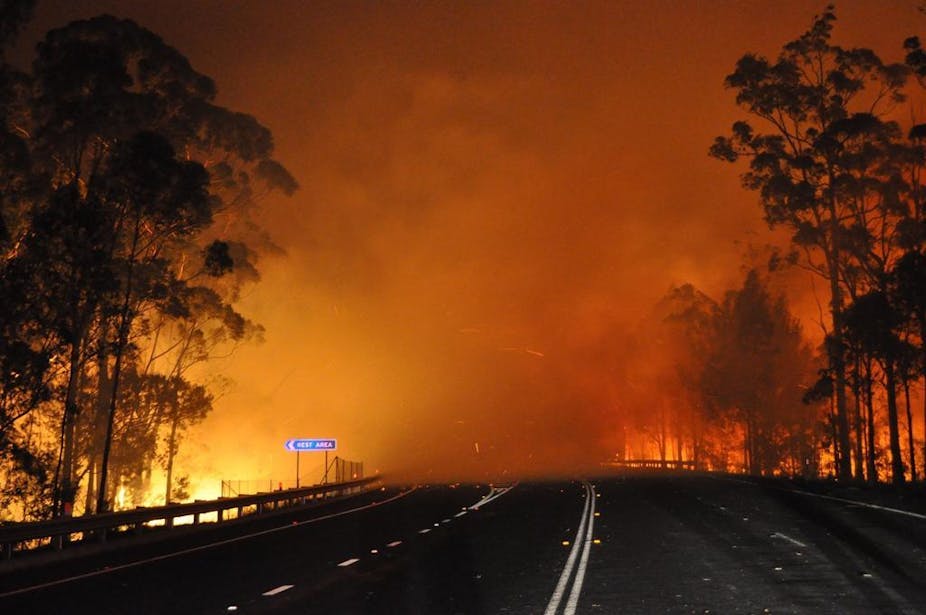Funding to support breakthrough research into fires is due to run out before Australia’s next bushfire season kicks in, despite the research being recognised for its social, environmental and economic impact.
Australia’s Bushfire Cooperative Research Centre will see its federal funding run out in July this year, as part of an arcane rule that places a limit on the number of consecutive terms CRCs can receive funding. The Bushfire CRC received an additional round of funding under the economic stimulus package in the aftermath of the 2009 Victorian bushfires, but has run out of Commonwealth funding avenues.
Its work is continuing in support of the current bushfires in Tasmania with the centre assembling an independent research task force to help the Tasmania Fire Service assess community preparedness and warning messages.
The funding lockout also comes despite a recent research impact assessment from the Group of Eight and the Australian Technology Network of universities putting projects with Bushfire CRC links at the very top of the scale for research bringing tangible benefits.
CRC Association chief Tony Peacock said the group would prefer to see funding based on merit, rather than rules that penalised advanced centres.
“It’s like telling Dawn Fraser two Olympics is enough,” Dr Peacock said.
He added that funding bids were always highly competitive, and that other measures could be put in place to support early research groups that sometimes found it hard to compete with more advanced centres.
Bushfire CRC chief executive officer Gary Morgan wrote in a note to researchers late last year that while the CRC had budgeted to ensure existing research continued until 2014, the challenge was finding money for new research.
“We really want to do long-term research rather than short-term research,” Mr Morgan said.
Mr Morgan said the CRC was already losing researchers, despite doing all it could to keep them going.
“$5 million is a lot of money, but $5 million is insignificant compared to the amount that was expended on the bushfires yesterday for response,” Mr Morgan said.
He added that the Bushfire CRC was helping to coordinate a national approach to fire research, something that was missing prior to Commonwealth funding.
For example, he said, the research currently being undertaken in Tasmania by the CRC would not just benefit Tasmania, but all the fire agencies and the entire Australian community.
The organisation is watching closely plans to apply for a Disaster Resilience CRC that would help support ongoing work, but any funding for a new CRC would not flow until July 2014.
Dr Peacock said the limits on consecutive funding of individual CRCs led to a shifting of responsibility from one government department to another.
He said the Australian taxpayer didn’t care where the money came from, but did expect the research to be government funded.
“The fact it comes out of the Department of Science versus Attorney-Generals is of complete irrelevance to the person in the street.”
Dr Peacock said while the government might prefer to see a broader area of research, such as disaster management research including fire and floods, a broad approach could make it more difficult to get industry engagement.

